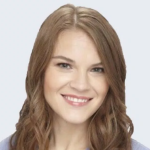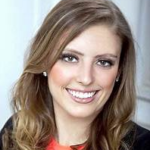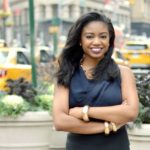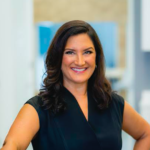As CNN’s chief political correspondent, Dana Bash, is used to being the interviewer. But I got the chance to ask Bash about her career advice and industry insights. Bash is CNN’s lead reporter covering both the U.S. House of Representatives and the U.S. Senate and she played a pivotal role in CNN’s 2016 presidential primary debates, serving as a questioner in six of the network’s seven primetime primary debates on both sides of the aisle. Bash serves as a co-anchor on set in the CNN Election Center for all election night specials and is the primary fill-in anchor for Jake Tapper on CNN’s premier political show, State of the Union. She spearheaded CNN’s Badass Women in Washington series which profiled women in politics.
Bash reported as CNN’s White House correspondent from Washington, D.C., and from locations around the world during President George W. Bush’s administration. She has reported on major stories including Hurricane Katrina, the Central Intelligence Agency leak investigation, and the capture of Saddam Hussein. She was instrumental in CNN’s 2006 mid-term election coverage and the 2004 presidential campaign. Before her on-air position with the White House unit, Bash was the Capitol Hill producer for CNN, where she had primary editorial and newsgathering responsibility for the network’s coverage of the U.S. Senate. She covered every major story on Capitol Hill, including the Republican dominance in the 2002 elections, the war on terrorism, campaign finance reform, the Florida recount and the impeachment of former President Bill Clinton. Bash also provided live reporting during the evacuation of the Capitol in the days after the September 11 attacks. In 2002, she broke the story of the government’s secret intercepts of Al Qaeda translations on September 10, 2001, for which she received her first Everett McKinley Dirksen for Distinguished Reporting of Congress Award from the National Press Foundation.
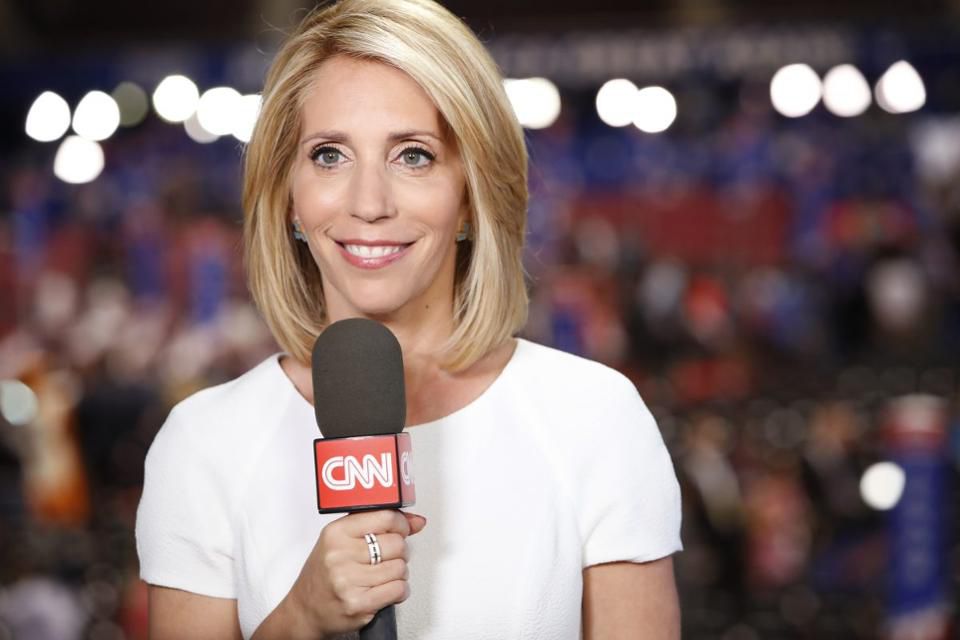
Dana Bash, CNN’s chief political correspondent, at the 2016 Republican National Convention in Cleveland, Ohio.
What are your responsibilities as a chief political correspondent at CNN?
It is my job to try to explain and make sense of political news in Washington, which these days is often no easy task. It used to be that experience in covering campaigns and even legislative fights gave a real insight into how something may turn out. But politics is now turned on its head, which makes it harder to predict, but also a lot more challenging and interesting to cover.
How do you think the recent presidential election has galvanized people, and especially women, to be more politically active? What have you seen first-hand from covering politics?
When President Trump won, women who were apathetic about Hillary Clinton and disliked President Trump got motivated. Democratic groups that help elect women, like Emily’s List, reported a huge uptick in women wanting to run for office from the local level on up. Having women in elected office — in both parties — matters on so many levels. Women tend to be good problem solvers and listeners, which is sorely needed in politics. More so, the fact that there are more women than ever in politics is a large contributing factor to Congress addressing how sexual harassment is dealt with on Capitol Hill. There is no question that if there were not 21 women in the Senate, it would be a different story.
You studied political communications at George Washington University and started freelancing for CNN your senior year. Were you always drawn to politics?
No, I was not always into politics at all. My father jokes with me that he is convinced that I graduated from high school without knowing there are three branches of government. But going to George Washington University and being in Washington, I caught the political bug.
You interviewed female politicians for CNN’s Badass Women of Washington. How do you think we can increase the number of female politicians?
Better recruitment. There is still a lot of work to do in both parties, particularly among Republicans. There are only five Republican female U.S. Senators and they all argue there needs to be more. Ronna Romney McDaniel, the chairwoman of the Republican National Convention (RNC), was one of the women I profiled in Badass Women of Washington and she came on determined to try to recruit more RNC women.
More so, men tend to be more naturally inclined to take leaps of faith in themselves which translates to politics. I also believe that female candidates tend to want to be sure they are 100 percent qualified for a job before going for it, but you learn by doing and I think that way of thinking in politics is changing.
You discuss sexual harassment and sexism in the workplace in the series. Recently, high-profile media executives have been fired for sexual harassment and female journalists at all levels often face sexism and sexual harassment in the newsroom. How do you see this moment that we’re in right now, given your career in journalism?
There is no question there is a dramatic cultural shift going on with warp speed, which is happening on the backs of many women who took risks to come out and tell their stories. It is not easy and there is no upside to it for these women. As a mother of a young son, I am teaching my son how to be a man who respects women. I hope that having a mom who is going elbow to elbow in a male-dominated industry each day helps.
What is a workday as like? Please walk me through a day!
There is no average day, which is what makes my job so exciting. Some days I come in early, some days I stay late. Some days I appear on panels, some days I interview newsmakers. Some days I do all of the above!
What’s the biggest lesson you learned at work and how did you learn it?
The biggest lesson I learned early on at work is that television news is a team sport. There are so many people in so many corners of the company — from technicians to editors to producers — that make things happen. It’s remarkable.
What is one thing that you wish you had known when you were starting out your career?
I was, and still am, ambitious and competitive but there are times you don’t have to beat yourself up for not getting a story first. It happens.
What is your career advice for other young professional women?
I always tell young women when in a sticky situation to stop and ask what a male would do.
What is the best advice you ever received?
The best advice that I’ve gotten is advice I largely ignored when I was younger, but now really try to heed. That advice is to take as much time to enjoy what really matters in life – but also to not take everything so seriously. Things will happen. Mistakes will happen. Learn from those inevitable mistakes, but don’t dwell on them or beat yourself up.
Photo courtesy of CNN.







